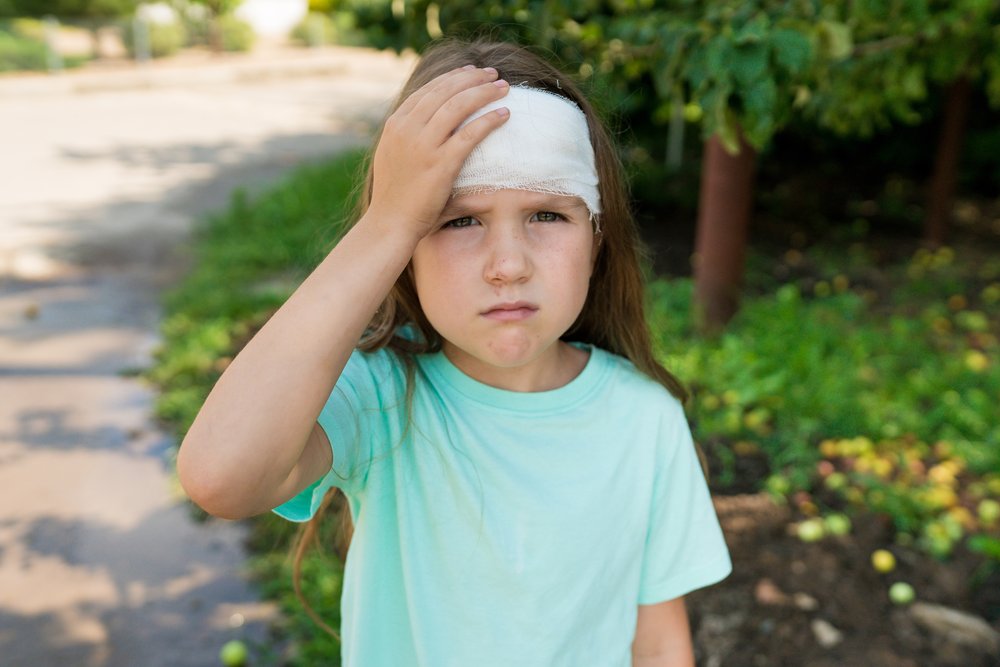Accidents happen, especially with kids who are full of energy and engage in all sorts of adventurous activities, let alone playing sports. While most bumps and falls result in nothing more than a bruise or a scrape, sometimes a head injury can happen, raising concerns about potential concussions. As a parent or caregiver, knowing what steps to take when your child hits their head is crucial for their well-being. In this guide, we’ll outline the necessary actions to assess the situation and provide guidance on what to do next.
Immediate Response
In the moments immediately after your child hits their head, your actions matter. Below are the steps that you should take when you see a potential head injury take place.
Stay Calm: Your child will likely be frightened or upset. Staying calm can help reassure them and keep the situation under control.
Remove Your Child From The Situation: This is especially important if the head injury has happened during a sporting event, or training. Often, children can want to jump back up and run back in – but this can’t happen. It’s your responsibility to remove your child from this situation.
Assess the Severity: Determine how hard the impact was and observe any immediate symptoms such as loss of consciousness, dizziness, vomiting, or confusion. It is common though for concussions to not have immediate symptoms, so know that this does not mean they’re in the clear.
Apply First Aid: If there are any cuts or bruises, clean the wound with mild soap and water, and apply a sterile bandage if necessary.
Concussion Assessment
Unfortunately, concussions are much more common than many of us expect, with as many as 3.8 million happening each year – and 5 in 10 going unreported. Because of that, it’s critical that you assess your child for concussion symptoms in the hours following a head injury. Below are the steps that you should follow.
Watch for Symptoms: Keep a close eye on your child for the next 24-48 hours. Symptoms of a concussion may not appear immediately, so remain vigilant for signs such as headache, nausea, sensitivity to light or noise, difficulty concentrating, or changes in mood or behavior.
Use Standardized Tools: Several tools are available to help assess the severity of a potential concussion, such as the Sports Concussion Assessment Tool (SCAT) or the Child SCAT. These tools can help you evaluate your child’s symptoms and determine whether medical attention is necessary.
Seek Medical Care
Whether your child is an athlete, or not, a concussion can be a life-altering injury and shouldn’t be taken lightly. Not only that, but it can open up a whole host of risks in the weeks immediately after too. This is why it’s essential that you seek medical care if you believe that your child has sustained a concussion – or if you’re not sure.
Consult a Healthcare Professional: A healthcare provider can conduct a thorough concussion assessment and provide guidance on the appropriate course of action. Choosing a provider like Parker Performance Institute allows you to rest assured knowing that your child’s concussion will be treated with a custom plan. This ensures that their unique needs are met, and that their risk levels of second concussion syndrome are low. Some of these treatments could include:
- Exercise Therapy, under the care of professionals
- Cognitive Training
- Vision Therapy & Vestibular Therapy
Follow Doctor’s Recommendations: Depending on the severity of the concussion, your child may need to rest, avoid physical activity, or refrain from screen time. It’s necessary that you follow your doctor’s recommendations carefully to support your child’s recovery, and prevent further risk to their brain.
A head injury can be a frightening experience for both children and parents. But knowing how to respond effectively and seeking appropriate medical attention means that you can help ensure the best possible outcome for your child. Remember to monitor their symptoms closely, follow medical advice diligently, and prioritize safety to minimize the risk of future injuries. With proper care and attention like the custom concussion treatment plans at Parker Performance Institute, most children can recover fully from a concussion and resume their normal activities without limitation.
Get in touch with experts at Parker Performance Institute today to learn more about the treatment options available for concussions and other traumatic brain injuries.




